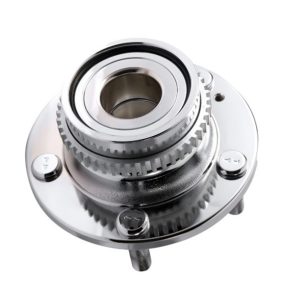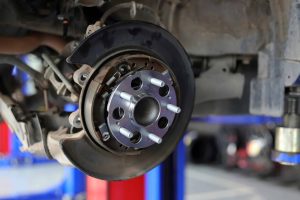In the world of automotive engineering, one size does not fit all — especially when it comes to wheel hubs and bearings. These critical components play a vital role in vehicle performance, safety, and durability. While standard vehicles require reliable hubs and bearings, off-road and heavy-duty vehicles operate in significantly harsher conditions, demanding specialized designs and materials.
This article explores what sets off-road and heavy-duty vehicle hub and bearing requirements apart from those of standard vehicles, highlighting the technical challenges and engineering solutions unique to extreme environments.
What Are Wheel Hubs and Bearings?

A wheel hub is the central part of the wheel that connects to the axle. Bearings, typically located inside the hub assembly, allow the wheel to rotate smoothly with minimal friction. Together, they ensure efficient movement and load support.
Key Differences in Requirements
| Feature | Standard Vehicles | Off-Road / Heavy-Duty Vehicles |
|---|---|---|
| Load Capacity | Moderate | High to Extreme |
| Sealing Systems | Basic dust and water protection | Advanced multi-lip or labyrinth seals |
| Material Composition | Conventional steel alloys | High-strength, corrosion-resistant alloys |
| Durability | Designed for paved road wear | Must resist mud, water, rocks, and impact |
| Maintenance Needs | Low | Moderate to high (with frequent inspections) |
| Bearing Type | Ball or taper roller bearings | Large taper roller or spherical roller bearings |
| Temperature Resistance | Standard operational range | Designed to handle extreme heat and cold |
Why the Difference Matters
1. Increased Load and Torque
Off-road and heavy-duty vehicles — like trucks, construction machinery, and military transports—carry much heavier loads. This puts intense radial and axial forces on the hub assembly, requiring reinforced materials and robust structural design.
Common Load Ranges:
| Vehicle Type | Average Load Per Wheel |
|---|---|
| Passenger Car | 400–600 kg |
| Off-Road SUV | 800–1,200 kg |
| Dump Truck | 2,000–5,000 kg |
| Earth Mover | 6,000+ kg |
2. Rough Terrain and Environmental Exposure
Standard vehicles operate on paved roads. In contrast, off-road vehicles encounter uneven surfaces, gravel, sand, mud, snow, and water crossings. The hub and bearings must withstand:
-
Constant vibration
-
Shock loads
-
Corrosive and abrasive substances
3. Sealing Systems: Keeping the Elements Out
Bearings are especially vulnerable to contamination. In heavy-duty settings, multi-lip seals or labyrinth seals are used to prevent:
-
Ingress of dirt and water
-
Loss of lubrication
-
Bearing failure
4. Materials and Coatings
Standard wheel hubs use common steel alloys. For off-road and industrial use, hardened steel, heat-treated alloys, and coatings like zinc-nickel or ceramic treatments are employed to resist corrosion and wear.
Engineering Innovations for Extreme Use

To address these challenges, manufacturers incorporate specialized design features, including:
Oversized Bearings
-
Better load distribution
-
Increased lifespan
Modular Hub Assemblies
-
Easier replacement
-
Integration of ABS sensors and brake components
Advanced Lubrication Channels
-
Optimized grease retention
-
Extended service intervals
Maintenance Best Practices
Heavy-duty hubs and bearings demand more rigorous care. Below is a checklist for preventive maintenance:
Routine Inspection Checklist:
-
Check for signs of bearing play or vibration
-
Inspect seals for leaks or damage
-
Clean and repack bearings (if serviceable)
-
Replace components showing early signs of fatigue
-
Torque wheel hub bolts to manufacturer specs
Cost vs. Longevity Considerations
While high-performance hubs and bearings for heavy-duty vehicles can be significantly more expensive than those for standard vehicles, the investment pays off in durability, safety, and reduced downtime.
| Component | Average Cost (Standard) | Average Cost (Heavy-Duty) | Expected Lifespan |
|---|---|---|---|
| Wheel Hub | €70–€150 | €200–€500+ | 80,000–200,000+ km |
| Bearings | €40–€100 | €150–€400+ | 100,000–250,000+ km |
Conclusion
Hub and bearing systems are the unsung heroes in any vehicle, but for off-road and heavy-duty machines, they are critical for survival. The difference lies not just in size but in material strength, design resilience, and adaptability to punishing environments. Choosing the right component can mean the difference between seamless performance and mechanical failure.
To ensure your vehicle is equipped with the best, always opt for high-quality OEM or aftermarket parts designed specifically for your use case.
Buy Hub & Bearings online from trusted suppliers to guarantee performance and reliability in the harshest conditions.